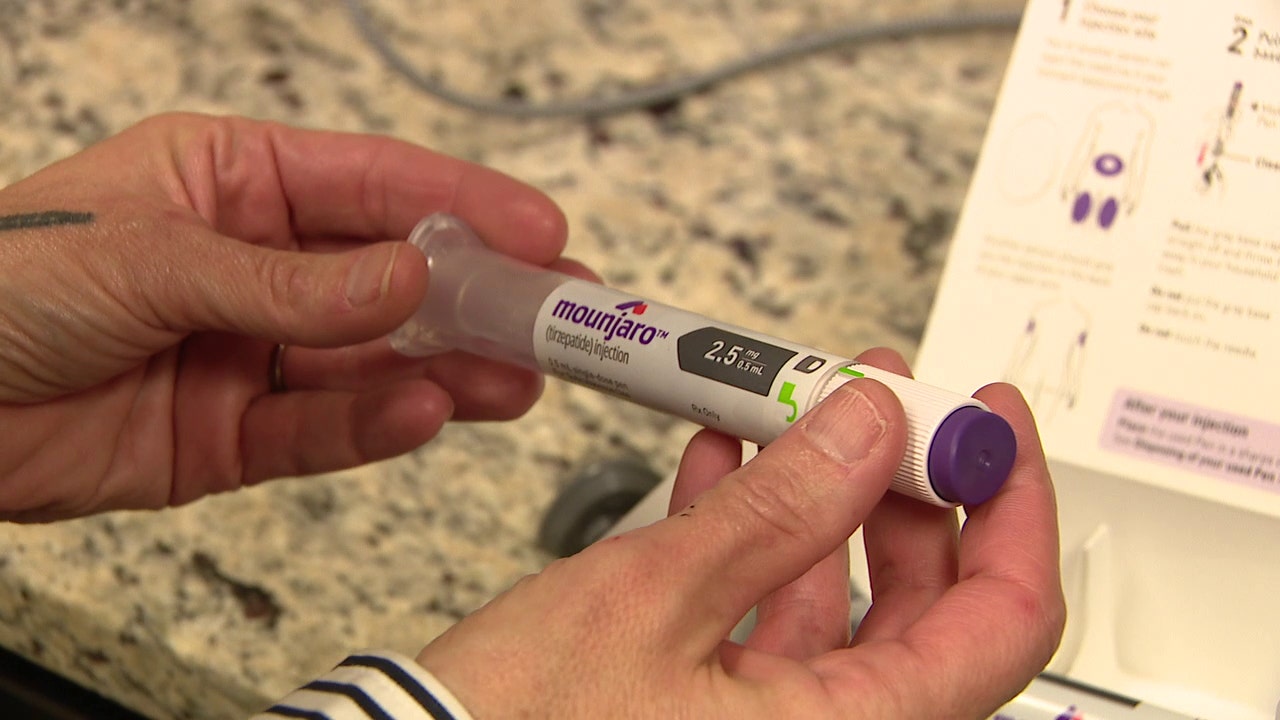Weight loss drugs spark conversation about obesity and treatments
Dr. Lakshmi Kannan, an endocrinologist at AdventHealth said tackling obesity isn't always a one-size fits all plan and for some, weight loss drugs may help give them an extra push. Tara Rothenhoefer, a lifelong struggle with obesity, started using a trial for weight loss medication after losing her sister, Charlene, to obesity complications. She lost about 70 or 80 pounds within the first six months of the trial and has lost 208 pounds. She now weighs 134 pounds. Dr. Lakshmi Kannan, an endocrinologist at AdventHealth, said that tackling obesity isn't always a one-size plan and that for some, these drugs may help them shed some of the weight off. He also highlighted that lifestyle changes can affect obesity, but it is not curable just with lifestyle changes. The World Health Organization has reported that worldwide obesity has doubled since 1990 and adolescent obesity has quadrupled.

Published : a month ago by Allie Corey in Health
Weight has been a lifelong source of struggle and pain for Tara Rothenhoefer.
"I've been battling obesity pretty much since I was a kid. In 2018, I lost my oldest sister, Charlene, to obesity complications. And at that point, you know, when you've tried everything out there, I really became emotional about it," said Rothenhoefer.
A few years ago, she decided to try something different.
"I heard about a trial for weight loss medication on the radio, and I called and signed up and I was a candidate. Immediately started seeing success. And within the first six months, lost about 70 or 80 pounds. I've lost 208 pounds. I started at 342. 134 currently," shared Rothenhoefer.
She said she noticed the food noise in her head had died down.
"All of a sudden I was like, wow, I'm not thinking about food. I'm not wondering what I'm going to have for lunch or what's my husband making for dinner," explained Rothenhoefer.
Navy veteran Steven Ricker sought help for his weight issues after he got out of service.
"I blew out my ACL on my right knee, and that reduced my activity level tremendously. I got much, much heavier. I maxed out eventually, at close to 300," said Ricker.
To help him take some of the weight off, he was prescribed Qsymia.
"It does suppress your appetite. It is helpful. I've lost about 15 pounds from my peak," said Ricker.
Dr. Lakshmi Kannan, an endocrinologist at AdventHealth said tackling obesity isn't always a one-size fits all plan and for some, these drugs may help give them an extra push.
"Obesity is a chronic, complicated, multifactorial disease. This truly stems from complicated gut-brain communications. Their lifestyle can contribute to a certain amount. It may amplify things. It may improve it a little bit when they change their lifestyle. But it is not curable just with lifestyle," shared Dr. Kannan.
Obesity has become a growing epidemic over the decades. According to the World Health Organization, worldwide obesity has doubled since 1990 and adolescent obesity has quadrupled.
"As a generation, we've gone through lots of lifestyle changes, more stressful lives. We live more modernized. Everything's at a fingertip. So, day to day physical activity has gone down. A lot more processed food. A lot has happened in the last 30 years that has just brought on this, pandemic, I would say, of obesity," explained Dr. Kannan.
"I think a lot of it has to do with genetics, to be honest with you. And I don't think that that's something, at least before now, we looked at enough," said Rothenhoefer.
"There are hereditary factors that control your appetite, your metabolism,' said Dr. Kannan.
Patients should be cautious, especially with the popularity and growth of injectable drugs.
"We want to make sure that we're using the brands that are approved for weight loss. We've used it for a longer time for our patients with diabetes. The studies that were done with our patients with diabetes, they used different doses, different formulations of these medications. We have to go with approved medications that have been studied in people without diabetes, where weight has been addressed and safety has been proven," said Dr. Kannan.
And the doctor stresses this point.
"None of the medications would work without lifestyle changes. This is a lifestyle change to see what foods are hurting them. Maybe it's not the amount, maybe it's their choice. Maybe it's not the choice. Maybe it's the time they consume those foods. If they have other medications on board, we try to explain how those medications are affecting the way your body processes the hunger signals, how that's affecting your stomach, emptying time, meaning some medications can slow your gut. Safety comes first in any medical condition. If you cannot tolerate it, even the best medication, you should not be on it," said Dr. Kannan.
"I know a huge factor has definitely been adjusting what I eat, how much I eat, and even when I eat. One of the recommendations during the trial was to just move as soon as you're able to. So, I started doing little things, taking a walk around the building at lunchtime," said Rothenhoefer.
She said she is now in maintenance mode.
"I don't take the drug on a regular basis. I think the potential is there to take it for life, if that's what my body tells me. I do really believe that I've built lifelong habits. And I, you know, I just try to maintain those every day," added Rothenhoefer.
SIGN UP: Click here to sign up for the FOX 13 daily newsletter
Topics: Nutrition
